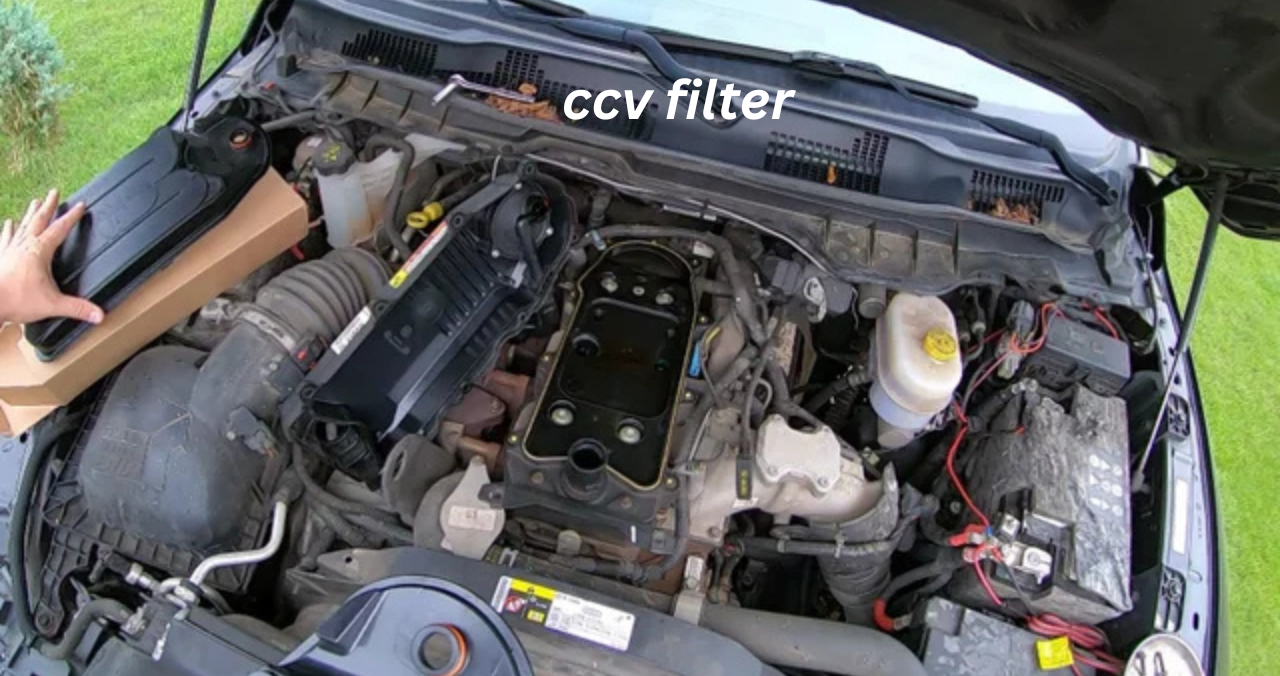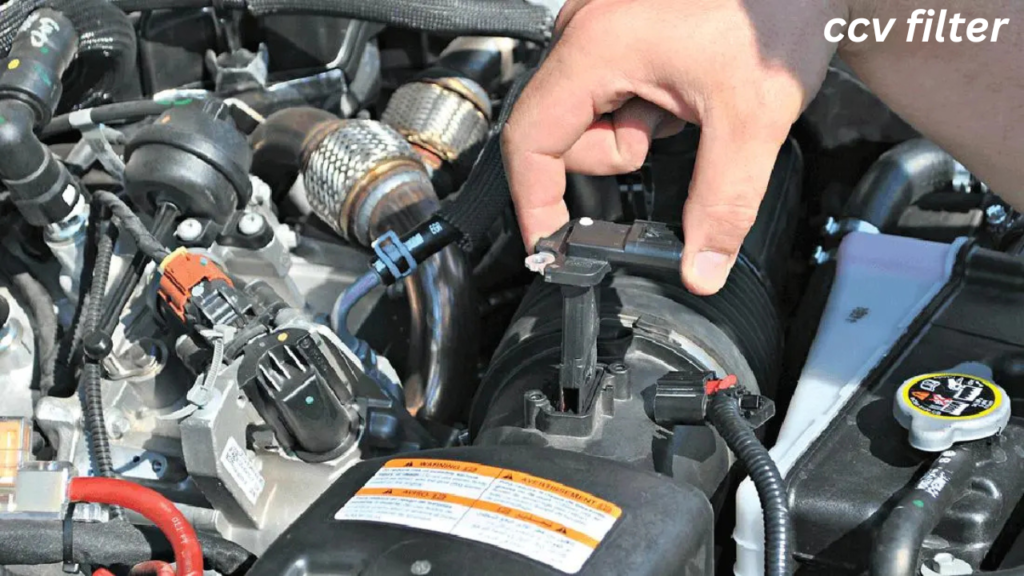How CCV Filter Improve Air Quality and Engine Longevity

In automotive maintenance, engine performance, and air quality are crucial factors that every car owner or fleet manager must consider. One component that plays a vital role in maintaining both these aspects is the CCV (Crankcase Ventilation) filter. While it might not be the most glamorous part of your engine, the CCV filter is vital for adequately functioning your vehicle or machinery. This article will delve into how CCV filter work, their role in improving air quality, and how they contribute to engine longevity.
What is a CCV Filter?
A CCV filter, short for Crankcase Ventilation filter, is a crucial part of an engine’s crankcase ventilation system. The primary function of the CCV filter is to separate oil and contaminants from the air that circulates through the engine. As the engine operates, gases and vapors are produced in the crankcase, which could include harmful oil vapors and blow-by gases (combustion gases that escape from the combustion chamber). These gases need to be expelled safely from the engine to ensure the air inside the engine and the environment remain clean.
Without a CCV filter, harmful contaminants and oil particles would be released directly into the atmosphere or recirculated within the engine, leading to problems such as poor engine performance, increased emissions, and reduced fuel efficiency.
The Functionality of a CCV Filter

A CCV filter captures contaminants, such as carbon particles, oil mist, and other particulate matter, present in the air from the crankcase. These pollutants are typically produced when the engine burns fuel and oil. The filter allows the clean gases to flow into the intake manifold while trapping the harmful particles and oil vapor.
The CCV system’s primary components include the filter, a valve, and a hose connecting the crankcase to the intake system. As gases are expelled from the crankcase, the CCV filter prevents the harmful particles from entering the engine’s intake manifold, ensuring that only clean air is circulating back into the engine.
Improving Air Quality with CCV Filters
Air quality is one of the most pressing concerns of modern society, and engines are a major contributor to air pollution, especially in industrial and heavy-duty vehicles. The gases emitted from an engine, particularly diesel engines, can be toxic and harmful to the environment. CCV filters are crucial in reducing harmful emissions released into the atmosphere.
Reducing Oil Mist and Vapor Emissions
Oil mist and vapor are by-products of engine combustion and can contribute to air pollution if not adequately filtered. CCV filters trap these oil particles before they can escape into the environment. Doing so helps reduce the emission of toxic vapors, improve the air quality around the vehicle, and reduce the environmental impact of engine exhaust.
Preventing Contaminants from Entering the Intake System
In addition to oil mist, other harmful contaminants, such as soot and dirt particles, may be released from the crankcase. If these contaminants are drawn into the intake system, they can damage the engine. By filtering these particles, the CCV filter ensures that only clean air enters the engine, preventing potential engine damage and further contamination.
Contributing to Environmental Standards
With growing concerns about environmental impact, many countries have implemented stricter vehicle emission standards. The CCV filter helps vehicles meet these standards by reducing the emission of harmful gases and particles. This is particularly important for diesel engines, which are known for producing significant quantities of particulate matter. The CCV filter is essential in helping vehicles comply with environmental regulations by improving the engine’s crankcase ventilation system.
Enhancing Engine Longevity with CCV Filters
While CCV filters are often overlooked, their impact on engine longevity cannot be overstated. By maintaining cleaner air within the engine, the CCV filter helps reduce the wear and tear on engine components, leading to a longer-lasting engine and fewer mechanical issues. Below are some of the key ways CCV filters contribute to engine health:
Reducing Oil Contamination
Engine oil is essential for lubricating moving parts and ensuring the engine operates smoothly. However, oil contamination by unfiltered vapors and contaminants can significantly reduce the oil’s effectiveness. The CCV filter traps these contaminants, preventing them from mixing with the engine oil and ensuring the oil remains cleaner for longer. Clean oil reduces friction and prevents premature wear on the engine’s moving parts.
Preventing Carbon Build-Up
Over time, engines can accumulate carbon deposits, blocking oil passages and reducing engine performance. These carbon deposits can also increase the risk of engine knock or misfire. By filtering out harmful gases and particles, the CCV filter helps reduce carbon accumulation in the engine, leading to smoother engine operation and improved overall performance.
Protecting the Turbocharger
For vehicles equipped with turbochargers, the CCV filter plays a vital role in preventing damage to the turbo system. Oil mist and vapors can be drawn into the turbocharger, potentially causing damage to its internal components. By filtering out the oil mist, the CCV filter helps protect the turbocharger from unnecessary wear and tear, prolonging its life and ensuring it continues to perform optimally.
Maintaining Fuel Efficiency
When the engine is free from contaminants, it runs more efficiently. The CCV filter helps ensure that only clean air is circulating through the engine, so the engine does not have to work harder to compensate for pollutants. This leads to better fuel efficiency and less strain on the engine, which, in turn, enhances its longevity.
Minimizing the Risk of Engine Overheating
Excess contaminants can clog the engine’s ventilation system, making it harder to expel gases. This can lead to increased pressure and overheating, which accelerates engine wear. The CCV filter traps these contaminants effectively, reducing the overheating risk and promoting optimal engine performance.
Maintenance of CCV Filters
Regular maintenance is essential to ensure that the CCV filter continues to perform its job effectively. Most CCV filters require periodic replacement, especially in vehicles exposed to harsh conditions or used for heavy-duty tasks. Replacing the CCV filter at regular intervals prevents the accumulation of contaminants and ensures that the engine remains free from harmful particles.
Signs You Need to Replace Your CCV Filter:
- Increased oil consumption: If your vehicle consumes more oil than usual, it could be due to an ineffective CCV filter.
- Engine performance issues: A clogged CCV filter can cause reduced engine performance, including sluggish acceleration and poor fuel efficiency.
- Oil leaks: If the filter becomes clogged, oil leaks may occur, indicating the need for filter replacement.
- Increased emissions: If the CCV filter is not working correctly, you may notice higher emissions levels or a “Check Engine” light.
Conclusion
CCV filters are often an underappreciated component of an engine, but they play a vital role in improving air quality and extending engine life. By reducing harmful emissions, preventing contaminants from entering the engine, and ensuring that oil remains free from pollutants, the CCV filter helps the environment and the engine perform at their best. Regular maintenance and timely replacement of the CCV filter will ensure that your engine remains healthy, efficient, and reliable for years.
FAQs
What does a CCV filter do?
A CCV filter filters harmful particles, such as oil mist and combustion gases, from the air expelled from the engine’s crankcase. It helps ensure that clean air is recirculated into the engine, improving performance and reducing emissions.
How does a CCV filter improve air quality?
A CCV filter significantly reduces harmful emissions by trapping oil mist, soot, and other contaminants before they can escape into the atmosphere, improving the overall air quality around the vehicle.
How often should I replace my CCV filter?
The frequency of replacing a CCV filter depends on the vehicle and its usage. Generally, it is recommended to replace the CCV filter every 15,000 to 30,000 miles or, according to the manufacturer’s recommendations.
Can a clogged CCV filter damage the engine?
A clogged CCV filter can lead to oil contamination, carbon build-up, and reduced engine performance. If not addressed, this can cause long-term engine damage.
Is a CCV filter necessary for all engines?
While the CCV filter is essential for most modern internal combustion engines, especially those with high-performance or diesel engines, some older models may not have this component. It’s always a good idea to check the owner’s manual to see if your vehicle requires one.
You May Also Read: https://sfmcompile.org.uk/nancy-mcclure/